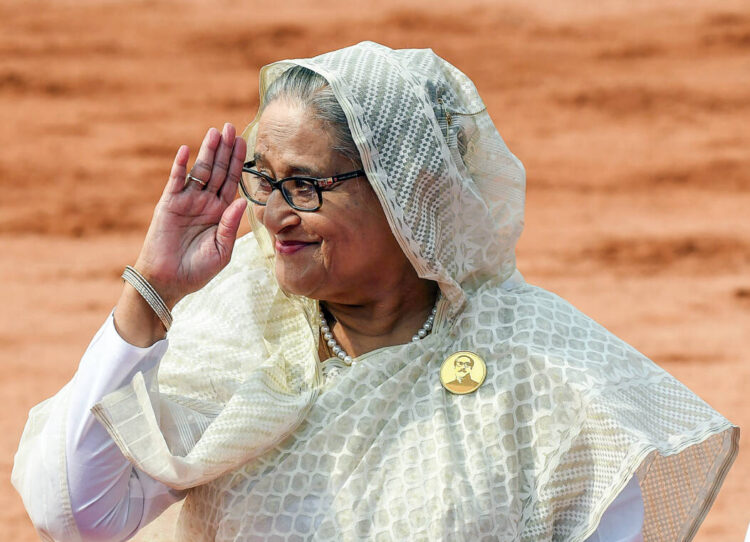New Delhi finds itself navigating a complex geopolitical landscape after Bangladesh Prime Minister Sheikh Hasina resigned and fled the country on Monday amid intense student-led protests. This significant political shift leaves India with fewer friendly governments in the neighborhood, with only Sri Lanka expected to maintain close ties with New Delhi.
In 2023, the Maldives elected Mohamed Muizzu, a leader known for favoring China as a development partner, as its President. Additionally, Nepal’s new Prime Minister, K.P. Sharma Oli, has reiterated claims over disputed territories with India. Meanwhile, Bangladesh’s leading opposition party, Khaleda Zia’s Bangladesh National Party (BNP), has maintained a strong anti-India stance, intensifying its “India Out” campaign.
Sheikh Hasina’s return for a fourth consecutive term in January 2024 had provided some reassurance to New Delhi amidst these changing dynamics. She was the first foreign leader to visit India after Prime Minister Narendra Modi’s re-election for a third term in June 2024, underscoring the strong bilateral relations between the two countries.
However, with Hasina’s departure, Bangladesh’s political uncertainty presents a new challenge for India. This comes at a time when other regional neighbors are increasingly leaning towards China.
Maldives: In September 2023, Mohamed Muizzu, known for his pro-China policies and “India Out” campaign, became the President of the Maldives. After taking office, Muizzu quickly sought to replace India as a security partner, securing military drones from Türkiye and pushing out Indian military personnel. Muizzu’s actions, including allowing Chinese research vessels to dock at Maldivian ports, indicate a significant shift towards Beijing.
Nepal: On the same day protests erupted in Bangladesh, K.P. Sharma Oli was sworn in as Nepal’s Prime Minister for the third time. Oli has a history of anti-India rhetoric and policies, including redrawing Nepal’s political map to include disputed territories. His recent statements reaffirming these territorial claims signal renewed tensions.
Myanmar: Myanmar remains engulfed in a civil war since the military junta seized power in 2021. This conflict has disrupted Indian projects like the India-Myanmar-Thailand Trilateral Highway and the Kaladan Multimodal Transit Transport Project. In February, India announced plans to fence its 1,643-kilometer border with Myanmar due to security concerns.
Indian Minister of External Affairs S. Jaishankar continues to address border stability issues with Myanmar, underscoring the ongoing regional challenges.
With Sheikh Hasina’s exit, India faces increased political uncertainty in Bangladesh and must navigate a complex and shifting regional landscape, balancing its strategic interests amid growing Chinese influence.

















Comments